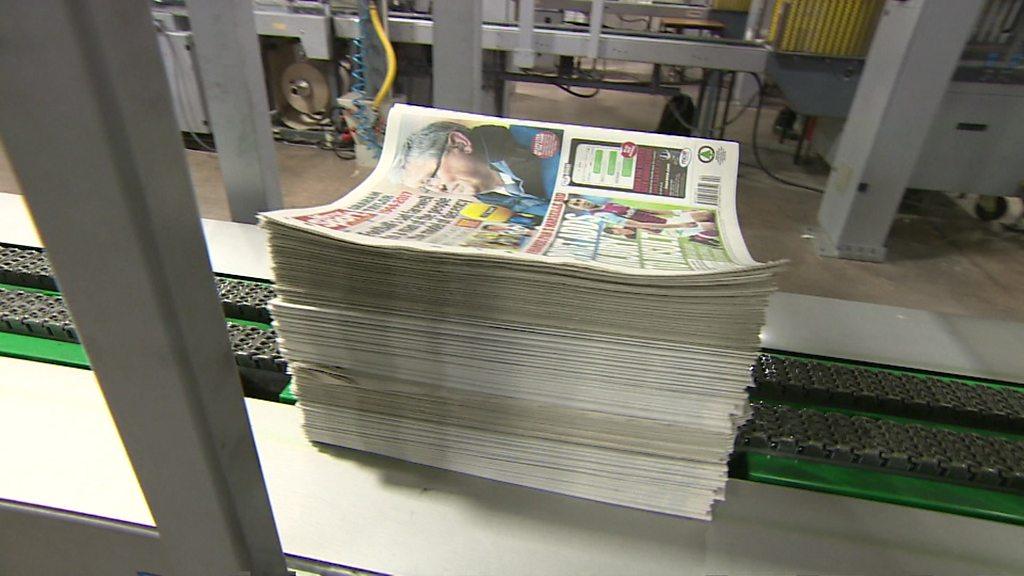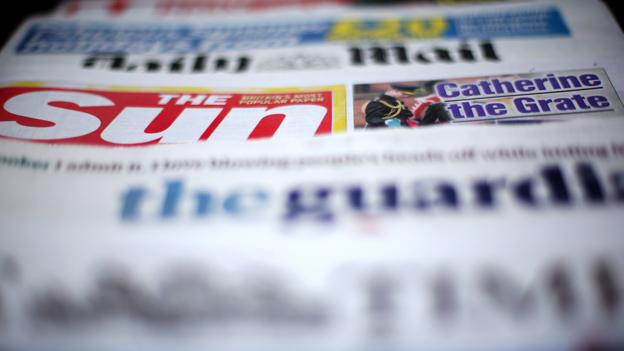Max Mosley: I have no vendetta against press
- Published
Mosley: 'Family's money funds press regulator, Impress'
Former Formula One boss Max Mosley, who is bankrolling officially-recognised press regulator Impress, has insisted he has no vendetta against the media.
He told the BBC's Sunday Politics such accusations were "not true" and money for Impress was coming from a "family trust" over which he had no influence.
So far, no UK national newspapers have signed up to it, preferring to join rival regulator Ipso instead.
Mr Mosley accused papers of wanting to "go on marking their own homework".
In a heated interview, presenter Andrew Neil repeatedly asked Mr Mosley - who won a legal case against the News of the World after it revealed details of his private life - whether he had a vendetta against the press.
Mr Mosley, now a high-profile privacy campaigner, said the interviewer should "stop saying that" because it was "not true", and challenged him to provide some evidence to support the accusation.
Why politicians and the press are at odds over regulation
Neil went on to ask whether people would find it "ironic" that money to fund the regulator had come from his father, Oswald Mosley, Britain's "historically best-known fascist".
Mr Mosley denied it had, saying: "The money comes from a family trust. It's family money."
He said it was not "put together by my father - my father inherited it from his father and from his father".
Sunday Politics reporter Ellie Price has been reading all about it.
The money, he insisted, gave him "absolutely no control" over Impress.
"If you do the most elementary checks into the contract between my family trust, the trust that finances Impress, it is impossible for me to exert any influence. It's just the same as if it'd come from the National Lottery."
Mr Mosley said it was "absolutely wrong" that responsibility for funding should have fallen to him and should have instead been met by the government or the press.
But he added: "I've made it possible for Impress to exist, and that was the right thing to do."
'Pure guff'
Asked if it was right that members of Impress's board were attacking some of the UK's papers on social media, including supporting calls to boycott or ban the Daily Mail and the Sun, Mr Mosley said he had never met any of the individuals concerned.
But he said he, personally, would not want to ban the Daily Mail.
"I think it's a dreadful paper. I don't read it but I wouldn't ban it."
He brushed off accusations that Impress was proposing "a charter for conmen, warlords, crime bosses, dodgy politicians and celebrities with a grievance against the press", saying it was "pure guff".
"The press do not want anyone to make sure life is fair," he said.
"All I want is someone who has got no money to be able to sue in just the same way as I can."
A public consultation on press regulation, which generated 140,000 responses, closed this week.
Ministers will soon decide whether to enact the controversial Section 40 of the Crime and Courts Act., external
If implemented, it could see newspapers forced to pay legal costs in libel and privacy cases, even if they won, if they don't sign up to an officially-approved regulator.
Newspapers say it is an affront to press freedom, while pro-privacy campaigners say it is the only way to make sure a scandal like phone-hacking, does not happen again.
Conservative former culture secretary John Whittingdale told the Sunday Politics he believed Section 40 should remain on the statute book, but only be enacted if it became clear that Ipso was "failing to work" and "not delivering effective regulation".
- Published15 January 2017

- Published30 October 2013
